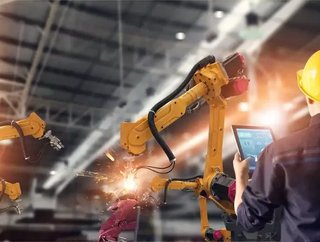Odesma: AI in the manufacturing supply chain

Ed Cross, Executive Director, Odesma, explores the true impact of Artificial intelligence in the supply chain of manufacturing.
When it comes to predicting future business trends numerical data has always been king; gathering as much of it as possible and developing the most sophisticated algorithms to digest it. Artificial Intelligence (AI) has turned this on its head, and instead of being focused on figures, the whole idea revolves around it being trend or word-led.
Rather than gathering as much historical data as possible to predict the future, AI can monitor changing trends and habits in real-time to give a more accurate, wider reaching view of what is to come for manufacturers. This includes monitoring what is being said across social media and other print and digital media. In this way, AI is much more reactive to ever-evolving global conversations and can turn this into actionable insights for businesses to develop more intelligent strategies.
But this is nothing new; when it comes to AI, manufacturing is much more sophisticated than many other sectors. For an industry challenged by tight margins, it has needed to become very tech savvy to deliver against targets.
Many manufacturers are already way down the line with automated processes such as Robotic Process Automation (RPA), which removes the human element from decision-making. Many factories are adopting a ‘lights off’ approach and as a result, are seeing increased levels of agility and leanness and time-consuming back office processes are being automated, freeing staff up to concentrate on value-added activities.
Tactical vs strategic
AI and other digital innovations are proving invaluable when it comes to the tactical aspects of manufacturing procurement, such as matching Purchase Order numbers with invoices, which in turn is enabling procurement leaders to focus on more strategic activities. These shifting priorities are creating a changing mindset, from focusing on the engine of the business to the customer experience, resulting in high-value rather than high-volume output.
Taking this strategic approach means organisations can now concentrate on the areas within their supply chain that will deliver the greatest value such as managing the supply base, cyber security and staffing.
Managing the supply base
Arguably the manufacturing landscape has never been more competitive, with businesses understanding the need to create stand-out products. Identification of and collaboration with new and novel suppliers should therefore be a key focus for the manufacturing procurement leader.
However, unless an innovative new supplier knocks on their door, or they are read about online or in a trade magazine, then it is as difficult as ever to find them.
When it comes to managing reputation, managing the supply chain is absolutely critical. As an experienced procurement leader, you know how important traceability, record keeping and human rights is and now that your back office has been automated, your focus now should be on cascading that same level of detailing throughout your supply chain to ensure they uphold your exacting standards.
The challenge with all of this is that, while you have AI streamlining the tactical side of the business, from a strategic point of view, the technology has simply not caught up. For example, there is currently no technology available that will help monitor supplier reputation, including whether they are engaged in modern day slavery, or to alert you to new suppliers.
Related stories:
The February issue of Supply Chain Digital is live!
JDA Software announces JDA ICON - The Intelligent Supply Chain Conference
Six ways in which Artificial Intelligence brings value to Contract Lifecycle Management
Cyber security
While manufacturing procurement is mature when it comes to AI and RPA, its approach to supply chain cyber security is woefully neglected and of great concern. Now that they have moved away from tactical activities, leaders should be ensuring that the level of tech innovation deployed is matched only by the level of cyber security within the organisation and throughout the supply chain.
The more connected to the Internet of Things (IoT) a business and its products become, the more exposed they become and the opportunities for attack they face. While many have robust internal policies in place for cyber security, the fact is, it might all be null and void if their suppliers do not share the same level of compliance.
Most products have a digital element – fridges, washing machines, cars; that digital connectivity presents new weaknesses that hackers will try to exploit. Procurement leaders should be reviewing the security processes throughout their supply chain to ensure every possible point of failure is identified and protected.
Inhouse skills
While AI and emerging technology continue to enable a shift in focus, from the tactical to the strategic, many manufacturers do not have the talent and skills internally to really maximise upon the opportunities presented by them.
Although automation is freeing leaders up, do they understand the sheer scope of these technologies and do they have the capability to draw upon and apply them in their new role? Is appointing a chief AI officer to the boardroom one solution?
What next?
While technological advances have empowered the higher-volume, tactical aspects of manufacturing procurement, support for the strategic element of business is falling far behind. Solutions must be developed that support every aspect of manufacturing procurement, from simple back office automation to complex market scanning.
For the manufacturing industry to realise the full benefits of advanced technologies, including AI, and its application to the supply chain, board members and other key decision makers must make it a priority area for training and upskilling.
With increased connection comes increased hackability, it is therefore vital for manufacturers to take the threat of cyber security seriously, both within the business and throughout the supply chain.
- The Home Depot is Enhancing CX thanks to Google CloudTechnology
- WATCH: Ivalua and PwC Navigate the Future of ProcurementProcurement
- Top 10: Women in Supply Chain and Procurement in APACProcurement
- Dumarey Streamlines Suppliers with BearingPoint and JAGGAERSupplier Relationship Management (SRM)






